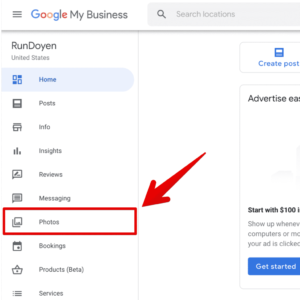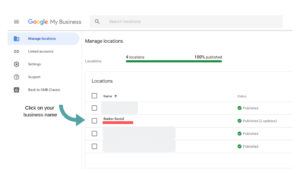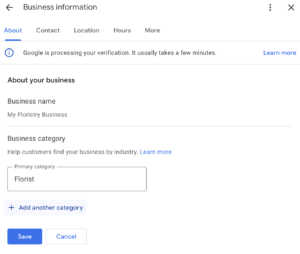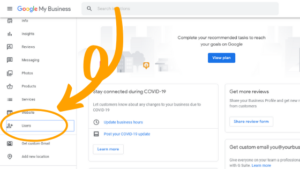Keyword research helps identify popular search terms and improves SEO strategy. It drives targeted traffic to your website.
Keyword research is essential for any successful digital marketing strategy. By identifying relevant keywords, businesses can better understand their audience’s search behavior. This leads to more effective content creation and higher search engine rankings. Proper keyword research also helps in discovering new market opportunities and staying ahead of competitors.
It ensures that your website attracts the right kind of traffic, which can lead to higher conversion rates. Overall, investing time in keyword research enhances online visibility, boosts organic traffic, and contributes to long-term business growth.
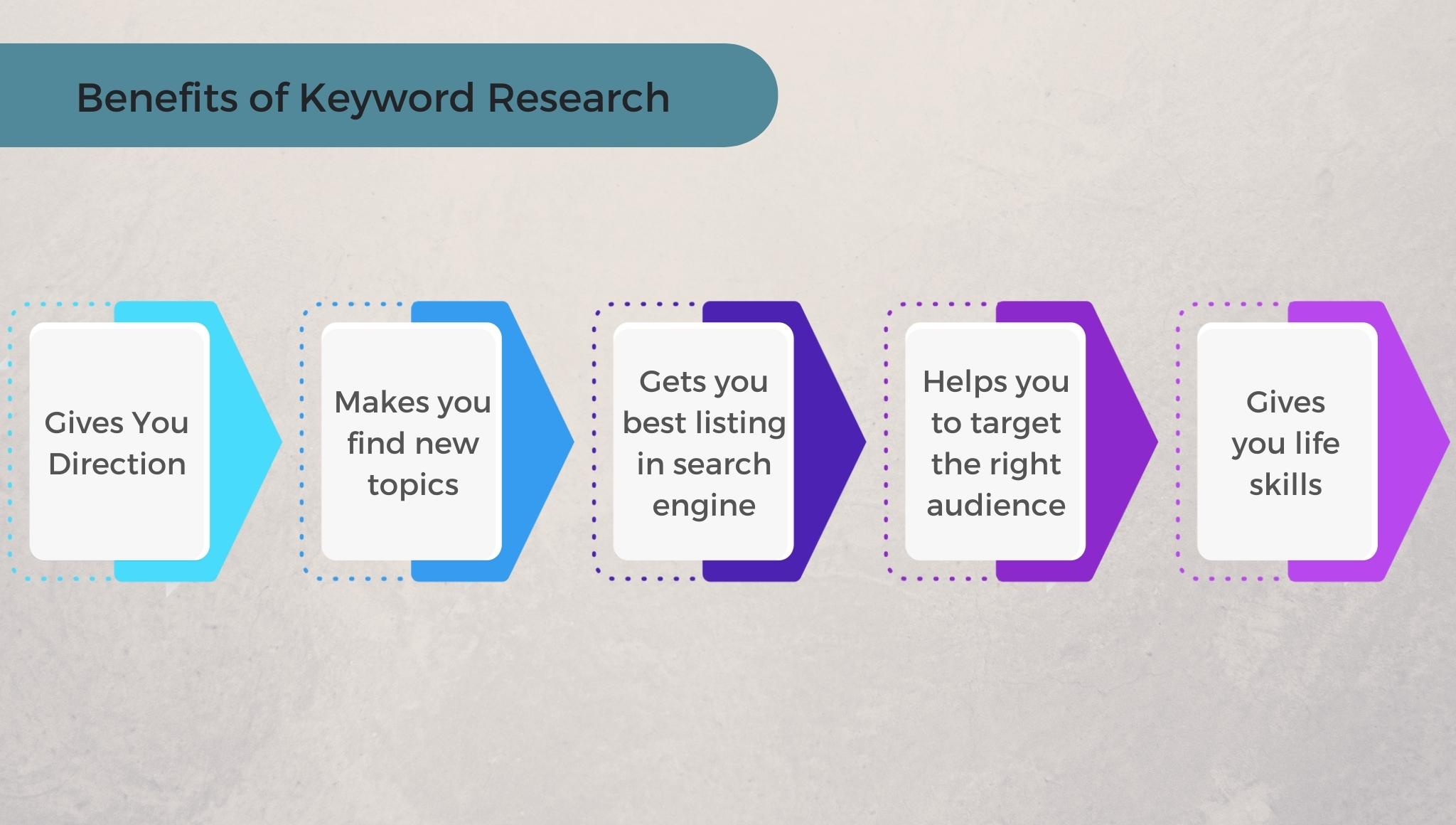
Credit: www.ecsion.com
The Essence Of Keyword Research In Seo
Keyword research is the backbone of SEO. It helps search engines understand what your content is about. This boosts your website’s visibility and relevance. Let’s explore the essence of keyword research in SEO further.
Driving Search Engine Visibility
Effective keyword research increases your website’s visibility on search engines. It identifies terms your audience uses. Implementing these terms strategically enhances your search engine rankings.
Search engines prioritize content that matches user queries. Using the right keywords can place your website on the first page of search results. This increases organic traffic and potential leads.
Aligning Content With User Intent
Understanding user intent is crucial for effective SEO. Keyword research helps align your content with what users are searching for. This ensures your content meets user needs and expectations.
There are three types of user intent:
- Informational: Users seek information or answers.
- Navigational: Users look for a specific website.
- Transactional: Users want to buy something.
Identifying these intents helps create relevant content. This improves user experience and engagement.
| Keyword Type | Purpose |
|---|---|
| Short-tail | General terms, high search volume |
| Long-tail | Specific terms, lower search volume |
Using both types of keywords effectively covers a wide range of user intents.
Crucial Steps For Effective Keyword Discovery
Effective keyword discovery is essential for any successful SEO strategy. It helps you understand what your audience is searching for. This process involves several key steps that ensure you target the right keywords. Here’s a look at the crucial steps for effective keyword discovery.
Identifying Your Target Audience
Before starting your keyword research, identify your target audience. Knowing who they are helps you understand their search behavior. Create detailed audience personas. These personas should include age, gender, interests, and pain points.
Use surveys and social media insights to gather data. Analyze your competitors’ audience to find common traits. This information helps you predict what keywords your audience might use.
Utilizing Keyword Research Tools
Once you know your audience, start using keyword research tools. These tools provide valuable data on search volume and competition. Popular tools include Google Keyword Planner, SEMrush, and Ahrefs.
Create a list of potential keywords. Use these tools to check their relevance. Look for keywords with high search volume and low competition. This balance ensures better chances of ranking.
| Tool | Features | Cost |
|---|---|---|
| Google Keyword Planner | Search volume, competition | Free |
| SEMrush | Keyword analysis, competitor research | Paid |
| Ahrefs | Backlink analysis, keyword research | Paid |
Organize your keywords into categories. This helps in content planning. Use long-tail keywords for specific topics. These are phrases with more than three words. They often have less competition.
Analyzing Search Intent
Understand the search intent behind each keyword. This tells you why people search for it. There are four main types of search intent:
- Informational: Users seek information.
- Navigational: Users want to find a specific website.
- Transactional: Users plan to make a purchase.
- Commercial Investigation: Users research products before buying.
Create content that matches the search intent. This improves user satisfaction and boosts rankings.
Analyzing Competitor Keywords
Analyzing competitor keywords is essential for effective keyword research. By examining the keywords your competitors use, you can gain valuable insights. This can help you optimize your own SEO strategy and stay ahead in the market.
Learning From Market Leaders
Market leaders often use well-researched keywords. Studying their keyword strategies can provide a wealth of information. Here are some key benefits:
- Identify high-performing keywords.
- Understand the keyword trends in your niche.
- Learn about the keywords that drive traffic and conversions.
A table can help illustrate the performance of these keywords:
| Keyword | Search Volume | Competition |
|---|---|---|
| Keyword A | 10,000 | Low |
| Keyword B | 8,000 | Medium |
| Keyword C | 5,000 | High |
Finding Gaps In Competitor Strategies
Identifying gaps in your competitors’ strategies is crucial. This can help you find opportunities they might have missed. Here’s how you can benefit:
- Discover keywords your competitors are not targeting.
- Identify long-tail keywords with low competition.
- Capitalize on emerging trends before your competitors do.
Use these insights to create content that fills these gaps. This can help you attract more traffic and gain a competitive edge.

Credit: www.linkedin.com
Keywords And Website Traffic
Understanding the power of keywords is crucial for boosting your website traffic. Proper keyword research helps you attract the right audience and increase your site’s visibility.
Attracting Quality Traffic
Using relevant keywords can help you attract quality traffic. When users search for specific terms, they are likely looking for content related to those words. By targeting these terms, you can meet their needs.
Here are some tips for attracting quality traffic:
- Identify long-tail keywords
- Focus on user intent
- Use tools like Google Keyword Planner
Long-tail keywords are longer and more specific phrases. They often have lower search volume, but higher conversion rates. For example, “best running shoes for flat feet” is more specific than “running shoes”.
Measuring Traffic Potential Of Keywords
It’s important to measure the traffic potential of your chosen keywords. This helps you understand their effectiveness.
Here’s a simple table to illustrate:
| Keyword | Search Volume | Competition |
|---|---|---|
| Running shoes | 100,000 | High |
| Best running shoes | 50,000 | Medium |
| Best running shoes for flat feet | 10,000 | Low |
Use tools like Ahrefs or SEMrush to get these metrics. Analyze the data to pick the best keywords for your strategy.
Remember, high search volume alone is not enough. You need to balance it with competition and relevance.
Improving Content Relevance
Keyword research is essential for improving content relevance. It helps create focused and valuable content. By understanding search terms, you can meet your audience’s needs better. Let’s explore how keyword research enhances content relevance.
Crafting Audience-centric Content
Creating audience-centric content involves understanding what your audience is searching for. Keyword research provides insights into the exact terms and phrases they use. This helps you tailor your content to their interests and questions.
For example, if users search for “best running shoes,” use this phrase in your content. Include sections on top brands, features, and buying tips. This makes your content more relevant and valuable to readers.
Using keywords effectively ensures your content matches user intent. This increases engagement and reduces bounce rates.
Enhancing User Experience With Targeted Keywords
Targeted keywords improve the user experience by making your content easier to find. When users find what they’re looking for quickly, they stay longer on your site.
Consider using long-tail keywords. These are specific phrases with lower competition. They attract more qualified traffic. For example, “affordable running shoes for beginners” targets a specific audience. It matches their intent and provides precise information.
Here’s a simple table to illustrate:
| Keyword | Search Volume | Competition |
|---|---|---|
| Running shoes | 50,000 | High |
| Best running shoes | 10,000 | Medium |
| Affordable running shoes for beginners | 1,000 | Low |
Using targeted keywords in titles, headers, and content improves search engine ranking. It helps users find your content easily. This enhances user satisfaction and increases return visits.
Keyword Research Impact On Conversion Rates
Keyword research is a vital part of any SEO strategy. Understanding which keywords your audience searches for can significantly boost your conversion rates. This involves identifying specific keywords that align with your products or services. This section explores how keyword research impacts conversion rates and how you can turn visitors into customers by optimizing for transactional keywords.
Turning Visitors Into Customers
Effective keyword research helps you understand your audience’s needs. By targeting the right keywords, you can attract visitors who are ready to buy. These visitors are more likely to convert into customers.
For instance, if you run an online pet store, you should target keywords like “buy dog food online” or “best cat toys.” These keywords indicate a clear intent to purchase. Using these keywords in your content can help you attract potential customers.
| Keyword | Intent |
|---|---|
| buy dog food online | High |
| best cat toys | High |
By focusing on such keywords, you can increase your chances of turning visitors into loyal customers.
Optimizing For Transactional Keywords
Transactional keywords are those that indicate a user’s intent to make a purchase. These keywords are crucial for improving conversion rates. Examples include “buy,” “discount,” and “deal.”
Consider the keyword “buy running shoes.” A visitor searching for this term is likely ready to purchase running shoes. By optimizing your content for this keyword, you can attract more ready-to-buy visitors.
Here are some tips for optimizing for transactional keywords:
- Include the keyword in your page title.
- Use the keyword in your meta description.
- Incorporate the keyword naturally in your content.
- Add the keyword to your product descriptions.
Optimizing for transactional keywords can significantly improve your conversion rates. It helps attract visitors who are already in the buying mindset.
Long-tail Keywords: The Untapped Goldmine
Long-Tail Keywords: The Untapped Goldmine are essential for SEO success. These keywords are phrases with three or more words. They are specific and less competitive. Targeting long-tail keywords can bring more targeted traffic. They help in reaching niche audiences effectively.
Benefits Of Targeting Long-tail Variations
Targeting long-tail keywords offers numerous benefits. These keywords often have lower search volumes but higher conversion rates. Here are some key benefits:
- Less Competition: Fewer websites target long-tail keywords.
- Higher Relevance: Long-tail keywords match user intent closely.
- Improved Conversion Rates: Specific searches lead to better engagement.
- Cost-Effective: They are cheaper for paid search campaigns.
Strategies For Finding Long-tail Keywords
Finding long-tail keywords can be a bit tricky. Here are some strategies to uncover these hidden gems:
- Use Keyword Research Tools: Tools like Google Keyword Planner and Ahrefs can help.
- Analyze Competitor Keywords: Look at the long-tail keywords your competitors rank for.
- Leverage Search Suggestions: Use Google’s autocomplete and related searches.
- Explore Online Communities: Forums and Q&A sites can provide keyword ideas.
| Tool | Feature |
|---|---|
| Google Keyword Planner | Provides search volume and trends |
| Ahrefs | Offers keyword difficulty and SERP analysis |
Adapting To Search Engine Algorithm Updates
Search engine algorithms frequently change. Keyword research helps you stay updated. Adapting to these changes ensures higher rankings. It also keeps your content relevant and visible.
Staying Ahead With Adaptive Keyword Research
Adaptive keyword research is crucial. It helps you keep up with algorithm updates. Regular research discovers new trends and search behaviors.
Use tools like Google Keyword Planner. It highlights trending keywords. Incorporate these into your content strategy. This way, you can stay ahead of competitors.
Predictive Analysis For Future Trends
Predictive analysis is a powerful tool. It forecasts future keyword trends. Analyzing data patterns helps anticipate changes.
Tools like SEMrush offer predictive insights. They show potential keyword performance. Use these insights to plan your content. This ensures long-term success.
| Benefits | Description |
|---|---|
| Staying Updated | Adapting to algorithm changes keeps your content relevant. |
| Increased Visibility | Using trending keywords boosts search engine rankings. |
| Competitive Edge | Adaptive research helps you outperform competitors. |
| Long-term Success | Predictive analysis ensures future content relevance. |
Regular keyword research is essential. It helps you adapt and stay relevant. Use the right tools for the best results.
Tracking And Refining Keyword Performance
Effective keyword research is only the beginning. To truly harness its power, you must track and refine your keyword performance. Regular monitoring and adjustments ensure your SEO strategy remains competitive and relevant.
Monitoring Keyword Rankings
Monitoring your keyword rankings helps you understand your position in search results. This data shows how well your site is performing for specific keywords. Use tools like Google Search Console or SEMrush for this purpose.
Here’s how you can track keyword rankings:
- Identify your target keywords.
- Use keyword tracking tools to monitor these keywords.
- Analyze the data to see trends and changes in rankings.
Tracking keyword rankings helps you identify which keywords need more focus. It’s an essential step in refining your SEO strategy.
Continuous Improvement Through Analytics
Using analytics for continuous improvement is crucial. Analytics tools provide insights into keyword performance. They show which keywords drive traffic and conversions.
Consider using these analytics tools:
- Google Analytics
- SEMrush
- Ahrefs
Analyze the data to see which keywords perform best. Focus on those that bring value. This approach helps you refine your keyword strategy effectively.
| Tool | Purpose |
|---|---|
| Google Analytics | Track website traffic and conversions |
| SEMrush | Monitor keyword rankings and competitor analysis |
| Ahrefs | Analyze backlinks and keyword performance |
Regularly review your analytics data. Make necessary adjustments to your keywords. This ensures you remain competitive in search rankings.

Credit: www.davidtaylordigital.com
Leveraging Local Seo With Geo-targeted Keywords
Businesses often overlook the power of local SEO and geo-targeted keywords. These strategies help capture a local audience, driving more foot traffic and local awareness. By using geo-targeted keywords, you can significantly improve your visibility in local searches.
Capturing Local Search Market
Optimizing your website with geo-targeted keywords ensures you appear in local search results. This can be crucial for small businesses that rely on local customers. For example, a bakery in New York should use keywords like “best bakery in New York” or “New York pastries”.
Here are some key benefits:
- Higher visibility in local search results.
- Increased foot traffic to your physical store.
- Better engagement with the local community.
Customizing Content For Regional Preferences
Understanding regional preferences can make your content more appealing. People in different areas have unique tastes and needs. Tailoring your content to these preferences can give you an edge.
Consider the following tips:
- Use local slang and terms.
- Highlight local events and news.
- Address specific local problems and offer solutions.
Here is a table summarizing key points:
| Strategy | Benefits |
|---|---|
| Use Geo-targeted Keywords | Higher local search ranking |
| Customize Content | Better local engagement |
| Highlight Local Events | Increased community awareness |
Frequently Asked Questions
What Are The Benefits Of Keyword Research?
Keyword research helps identify popular search terms. It boosts search engine rankings, increases organic traffic, and targets the right audience.
Why Is It Important To Use Keywords In Research?
Using keywords in research improves search engine visibility and helps target relevant audience, boosting engagement and credibility.
What Are The Three Important Aspects Of Keyword Research?
The three important aspects of keyword research are search volume, keyword difficulty, and relevance. High search volume indicates popularity. Low difficulty suggests easier ranking. Relevance ensures the keyword matches your content and audience.
What Are The Advantages And Disadvantages Of Keywords?
Keywords boost search engine rankings and drive targeted traffic. They enhance content relevance and user engagement. Overuse can lead to keyword stuffing, harming SEO. Choosing the wrong keywords might attract unqualified traffic. Effective keyword strategy balances relevance and search volume.
What Is Keyword Research?
Keyword research involves identifying popular search terms to optimize content for better search engine rankings.
Conclusion
Effective keyword research boosts your website’s visibility and search engine ranking. It attracts targeted traffic and enhances user engagement. Implementing proper keyword strategies can lead to higher conversion rates. Invest time in keyword research and see significant improvements. It’s a crucial step for digital marketing success.



